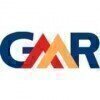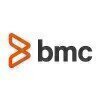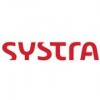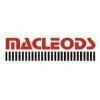Project Management Officer
20+ Project Management Officer Interview Questions and Answers

Asked in GMR Group

Q. What score would you give yourself for different software in the scale of 1 to 10? This may varry from person to person. Then there may be some questions regarding that.
I would rate myself a 9 for Microsoft Project, 8 for Jira, and 7 for Trello.
Microsoft Project - 9
Jira - 8
Trello - 7

Asked in Amdocs

Q. What is a VBA program that can filter Excel data based on two columns and move the filtered data to another sheet?
A VBA program can filter Excel data based on two columns and transfer the results to another sheet efficiently.
Use the AutoFilter method to filter data based on criteria from two columns.
Example: Filter Column A for 'Sales' and Column B for '2023'.
Copy the visible filtered data to a new sheet using the Range.Copy method.
Ensure to clear previous data in the destination sheet before copying new data.
Project Management Officer Interview Questions and Answers for Freshers

Asked in Amdocs

Q. Can you provide examples that illustrate the use of DAX in Power BI?
DAX in Power BI enables advanced data analysis through calculated columns, measures, and filtering.
Calculated Columns: Create new data columns using DAX formulas, e.g., 'Sales[Total Sales] = Sales[Quantity] * Sales[Unit Price]'.
Measures: Define calculations that aggregate data dynamically, e.g., 'Total Revenue = SUM(Sales[Total Sales])'.
Time Intelligence: Use DAX functions for date calculations, e.g., 'YTD Sales = TOTALYTD(SUM(Sales[Total Sales]), Dates[Date])'.
Filtering: App...read more

Asked in Olympiados

Q. A project has a 60% chance of INR PHONE_NUMBER profit and 40% chance of INR PHONE_NUMBER loss. What is the expected monetary value of the project?
The expected monetary value of the project is INR 200,000 profit.
Calculate the expected monetary value by multiplying the probability of each outcome by its respective monetary value and summing the results.
Expected Monetary Value = (0.6 * 1000000) + (0.4 * -1500000) = 200000
The project is expected to result in a profit of INR 200,000.

Asked in Mahindra & Mahindra

Q. Describe your experience leading a team and effectively dealing with stakeholders.
I have extensive experience in leading teams and effectively managing vendor relationships to ensure project success.
Led a team of 10 in a software development project, improving delivery time by 20%.
Successfully negotiated contracts with vendors, resulting in a 15% cost reduction.
Implemented regular team meetings to enhance communication and address issues promptly.
Utilized project management tools like Trello and Asana to track progress and assign tasks efficiently.

Asked in Parekh Integrated Services

Q. Type of transformer oil, type of efficient transformer
Transformer oil is typically mineral oil, and efficient transformers are usually dry-type transformers.
Transformer oil is usually mineral oil, which acts as a coolant and insulator in transformers.
Efficient transformers are often dry-type transformers, which do not require oil for cooling.
Other types of transformer oils include silicone-based oils and bio-based oils.
Efficient transformers may also include amorphous core transformers or superconducting transformers.
Project Management Officer Jobs



Asked in Schuf Speciality Valves

Q. What is the different types of pumps?
Different types of pumps include centrifugal pumps, positive displacement pumps, and axial flow pumps.
Centrifugal pumps use a rotating impeller to create flow and increase pressure.
Positive displacement pumps move fluid by trapping a fixed amount and forcing it through the discharge.
Axial flow pumps move fluid parallel to the impeller shaft.
Examples include gear pumps, diaphragm pumps, and peristaltic pumps.

Asked in American Broadcasting Company

Q. What is the difference between project management and program management?
Project management focuses on managing individual projects, while program management involves coordinating multiple related projects to achieve strategic objectives.
Project management is focused on delivering a specific output within a defined timeframe and budget.
Program management involves overseeing a group of related projects to achieve broader organizational goals.
Project managers typically have authority over a single project, while program managers have authority over ...read more
Share interview questions and help millions of jobseekers 🌟


Asked in Parekh Integrated Services

Q. Can you draw a Single Line Diagram (SLD) from a substation to a room light?
SLD (Single Line Diagram) shows the electrical connections from substation to room light.
Start with the substation as the power source
Draw a line representing the main distribution line
Include transformers, panels, switches, and cables
End with the room light as the final destination

Asked in SYSTRA

Q. What is Earned Value Analysis?
Earned value analysis is a project management technique used to measure project performance and progress.
Compares actual work completed and costs incurred to planned work and costs
Helps identify project variances and forecast project outcomes
Uses metrics such as planned value, earned value, and actual cost
Provides insight into project schedule and budget performance
Can be used to make data-driven decisions and adjustments to project plans

Asked in Emids Technologies Limited

Q. Explain agile methodologies.
Agile methodologies are iterative and incremental approaches to project management that prioritize flexibility and adaptability.
Agile methodologies prioritize individuals and interactions over processes and tools
They emphasize working software over comprehensive documentation
Agile teams work in short iterations, or sprints, to deliver small, incremental improvements
They rely on constant feedback and collaboration between team members and stakeholders
Examples of agile methodol...read more

Asked in Parekh Integrated Services

Q. What are SP, TPN, and VTPN?
SP stands for Schedule Performance, TPN stands for Total Planned Value, VTPN stands for Value of Total Planned Value
SP is a measure of how well the project is adhering to the schedule
TPN is the total budgeted cost of the work scheduled to be done
VTPN is the earned value of the work actually completed

Asked in Accenture

Q. What is project management?
Project management is the practice of initiating, planning, executing, controlling, and closing the work of a team to achieve specific goals and meet specific success criteria.
Involves initiating, planning, executing, controlling, and closing a project
Focuses on achieving specific goals and meeting success criteria
Requires effective communication, organization, and leadership skills
Utilizes tools and techniques to manage resources, time, and budget effectively

Asked in Parekh Integrated Services

Q. Are you able to create BOQ sheets?
Yes, I can create Bill of Quantities (BOQ) sheets for project management, ensuring accuracy and clarity.
BOQ sheets detail quantities and costs of materials needed for a project.
I use software like Excel or specialized BOQ tools for efficiency.
For example, in a construction project, I would list items like concrete, steel, and labor with their respective quantities and costs.
I ensure that the BOQ aligns with project specifications and drawings.
Regular updates and revisions are...read more

Asked in Parekh Integrated Services

Q. Type of Distribution Box
Distribution boxes are used to distribute electrical power to different circuits or devices within a building.
Distribution boxes can be categorized based on the number of ways or circuits they can accommodate (e.g. 4-way, 8-way, 12-way)
They can also be classified based on the type of protection they offer (e.g. MCB distribution box, RCCB distribution box)
Distribution boxes can be surface-mounted or flush-mounted depending on the installation requirements

Asked in GRP

Q. What is the APQP process?
APQP (Advanced Product Quality Planning) is a structured process used in the automotive industry to ensure quality and reliability of products.
APQP involves defining and documenting the steps needed to ensure that a product meets customer requirements.
It includes activities such as product design and development, process design and development, product and process validation, and feedback assessment.
APQP helps in identifying potential risks and issues early in the product dev...read more

Asked in Macleods Pharmaceuticals

Q. What if form 29
Form 29 is a document used in project management to request changes to the project scope, schedule, or budget.
Form 29 is typically used to document and track changes requested by stakeholders.
It includes details such as the reason for the change, impact on project objectives, and proposed solution.
The form may require approval from project sponsors or steering committee before implementation.

Asked in Subros

Q. Define project management.
Project management involves planning, organizing, and overseeing the execution of a project to achieve specific goals within a set timeframe and budget.
Project management includes defining project goals and objectives
It involves creating a detailed project plan with tasks, timelines, and resources
Project managers coordinate and communicate with team members to ensure project progress
Monitoring and controlling project activities to stay on track and within budget
Adapting to ch...read more
Asked in AmpIn Energy Transition

Q. Project Management Steps
Project management steps involve initiating, planning, executing, monitoring and controlling, and closing a project.
Initiating: Define the project, set goals, and identify stakeholders.
Planning: Create a project plan, schedule, and budget.
Executing: Implement the project plan and manage resources.
Monitoring and Controlling: Track progress, identify issues, and make adjustments.
Closing: Finalize all project activities and deliverables.

Asked in Olympiados

Q. No profit no loss situation
A no profit no loss situation refers to a scenario where the revenue earned equals the expenses incurred.
In a no profit no loss situation, the total revenue generated is equal to the total expenses incurred.
This scenario is often seen in non-profit organizations where the goal is not to make a profit but to cover costs.
Examples include charity events where all proceeds go towards a cause without any profit being made.

Asked in Shyam Sel & Power

Q. Draw a power triangle.
The Power triangle is a diagram used in project management to illustrate the relationship between scope, time, and cost.
The three sides of the triangle represent scope, time, and cost.
The triangle shows that changes in one aspect will affect the other two.
For example, increasing the scope of a project will likely lead to an increase in time and cost.
Conversely, reducing the time allocated to a project may require a reduction in scope or an increase in cost.
Interview Questions of Similar Designations
Interview Experiences of Popular Companies






Calculate your in-hand salary
Confused about how your in-hand salary is calculated? Enter your annual salary (CTC) and get your in-hand salary


Reviews
Interviews
Salaries
Users










